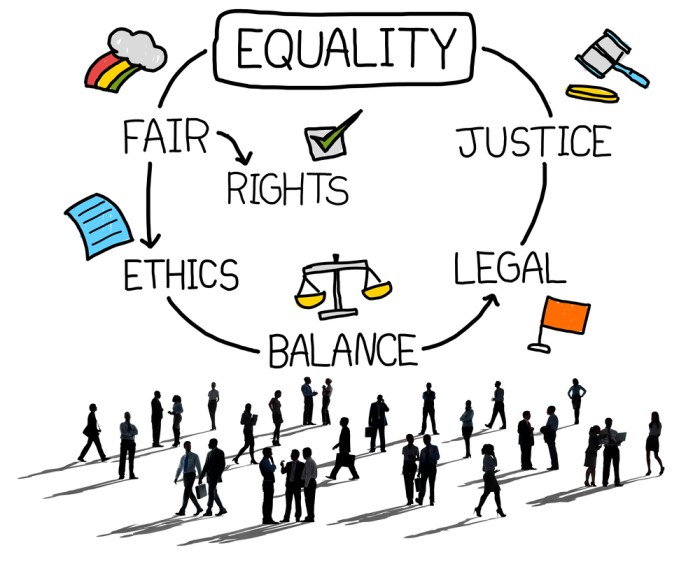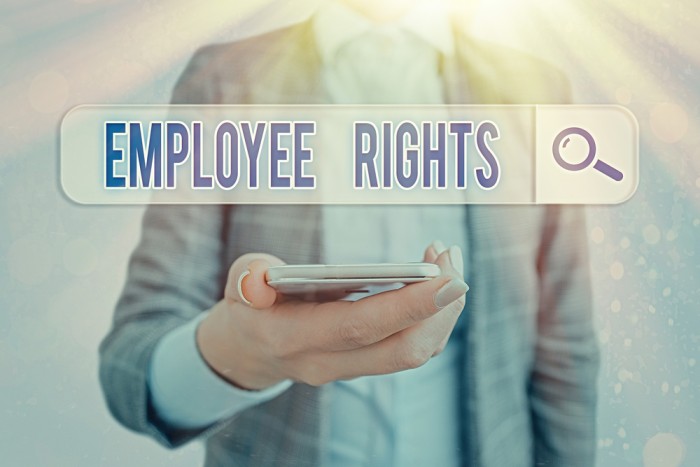What are your rights as a worker? We answer all of your questions. While we all know that workers have employment rights, what do they mean? How do you ensure you protect? How do you ensure you are not dismissed or unfairly made redundant, or even sacked for taking sick leave? These are the questions I’ll answer today.
What are workers rights? The Fair Work Act 2009. (Cth) has been in effect since January 2010. This Act is applicable to all Australian workplaces. It regulates the employer-employee relationship and stipulates all workers’ rights. This legislation contains the National Employment Standards (NES). These provisions provide general protections, including the rights of casual, full-time and part-time workers, as well as unfair dismissal provisions.
Contracts of Employment and the NES
Employers must provide minimum employment rights to their employees under the National Employment Standards (NES). These are the NES:
- Maximum weekly hours of work
- Public holiday and leave pay entitlements
- Flexible working arrangements
- Fair Work Information Statements;
- Notice of termination and redundancy payment
The NES provides a safety net for employees, and provides a range of worker rights. The NES ensures that employees have the right to work and maintain minimum work conditions. No matter if an employee is working full-time, casually or part-time. Casual employees are not eligible for certain NES benefits.
A contract of employment between an employee and employer does not replace the minimum worker’s rights and entitlements in Australia. A contract cannot be drafted out of law or if an entitlement is less than or exempts the NES.
Take, for example. A full-time employee may agree in their employment contract to receive only five days of personal/Carer leave per year. Despite what the contract may say, that employee still has the right to 10 days personal/Carer leave.
The NES states that a full-time employee has the right to 10 days of paid personal/carer leave each year. If the employment contract provides more benefits or terms for an employee, it is a valid right. These terms and entitlements can be enforced as they exceed the minimum worker’s rights established by the NES.
Is Your Boss Great, But Not Providing You With Entitlements?
We receive a lot of calls about great bosses, but he won’t give me any time off. He does not pay overtime. They won’t tell you how many holidays I am owed and I haven’t taken a vacation in years. He’s great and he’s ripping off you. He is getting the benefit. You have the right to do what is right.
Full-Time employees have rights
Permanent full-time employees are hired on a permanent basis pursuant to an ongoing employment contract. The NES provides the following minimum conditions for permanent full-time employees:
- Maximum 38 hours per week. An employer may request that employees work more hours, but only if it is reasonable.
- If the employee is full-time, they have the right to request flexible work arrangements. You are either a parent, or someone responsible for the care and education of young children. Carer is someone who has a disability, is 55 years old or has been victim to violence by a family member. (Or providing support or care to a family member or immediate family member who is experiencing violence).
- Paid annual leave of 4 weeks each year
- Unpaid parental leave up to 12 month and the right to ask for unpaid parental leaves for an additional 12 months. A full-time employee must be employed for 12 months. You are or will be responsible for a child.
- Paid personal/carer leave up to 10 days per annum, two days unpaid caregiver’s leave, and as many days as necessary compassionate leave
Written notice
- In the event that an employee’s employment ends, their employer must give written notice. If an exception applies, the employer may give written notice of the day of termination, for example, if the employee’s misconduct was serious. The employer is not required to give notice to the employee.
- Employers are required to give employees a minimum amount of notice under the NES. Or, pay a notice payment instead of the employee working out the notice period. The length of time the employee has worked for an employer will determine the amount of notice.
- An employee who has served more than one year with their employer. An employee has the right to at least one week notice from their employer. An alternative to giving notice from the employer is to pay the employee one week’s salary.
- The NES provides that an employee who has served two years continuously with their employer and is 45 years old or older, can be entitled to an extra week of notice. Notably, if the employee’s employment contract contains notice arrangements that are better than the minimum required by the NES then these arrangements will normally apply.
Employers Obligations
If your employer knowingly defrauds you of your wages or entitlements, it is a crime. If you are not paid according to the NES or the award system, the authorities will take it seriously.
Redundancy entitlements
- if an employer has made an employee’s employment position redundant. Redundancy pay may be available to full-time employees under the NES. In some isntances redundancy pay can be paid up to 16 weeks depending on how long the employee has been employed by their employer.
- Redundancy pay under the NES is not available in all cases. Redundancy pay is not available to employees who work for a small business employer, as such they do not have the right to it. It is vital to check the employee’s contract for entitlements to redundancy pay.
- An employee must receive a copy the Fair Work Information Statement upon starting employment with an employer.
- This statement includes information about the NES and modern awards, agreement-making, rights and benefits for employees, as well as the roles of Fair Work Ombudsman and Fair Work Commission.
Your Part-Time Employees’ Rights
Part-time employees can also be employed on a regular basis but work less than 38 hours per week. All part-time employees have the same rights and conditions as full-time employees, but their entitlements are usually pro-rated according to how many hours they work each week.
A part-time employee still has the right to four weeks of annual vacation per year under the NES. However, this entitlement is based on the number of hours worked each week. If a part-time employee works 20 hour per week, the annual leave payment will be calculated based on a 20-hour work week and not a 38-hour week.
The Rights of Casual Employees
Casual employees are not guaranteed hours of work and are paid per shift. They do not receive paid leave entitlements for time off work, notice of termination, or any other payments or redundancy compensation.
Casual employees get paid per hour and are compensated based on how many hours they have worked in a week. A casual employee cannot be guaranteed a certain number of hours per week, as an employee on a permanent basis.
Casual employees receive a higher hourly wage because of the nature of casual work. This is called a casual loading. This loading replaces some benefits that part-time and full-time employees receive from their employer. These include paid annual and personal/carer leave, notice to terminate and compensation for any loss of security in their employment.
Some employees are happy to work for no pay. They are willing to help. Your employer is legally bound to pay you correctly. This article has shown that the employer and employee cannot communicate about this. The employer is responsible for this.
Minimum Conditions For Casual Employees
Below are the minimum conditions for casual employees.
- To work less than 38 hours per week and to only work reasonable hours when it is possible.
- Casual employees are entitled to two days of unpaid caregiver’s leave and two days unpaid compassionate leaves are required. – renewed on your anniversary year.
- Unpaid leave for community service
- To be absent from work on public holidays. The casual employee will not be paid if they do not work the public holiday.
- Unpaid parental leave rights and the right to request flexible work arrangements. They have been working for their employer for at least 12 months on a consistent and systematic basis, with the expectation of continuing employment.
Unfair Dismissal
The Act also guarantees fair working conditions and protections for all employees . Workers are protected from unfair dismissal. Permanent employees who feel they were unfairly dismissed can file a claim for unfair dismissal.
If they have been employed by their employer for less than six months, or if their employer qualifies as a Small Business employer. An employer with less than 15 employees is a Small Business Employee for a 12-month period. Employees must also earn less than the threshold for high income or be covered under a modern award, or enterprise agreement.
If casual workers were regularly employed and had a reasonable expectation of continuing work, they can also file a claim for unfair dismissal.
Unfair dismissal applications must be filed within 21 calendar days of the date that the dismissal became effective. If the Commission considers that there were exceptional circumstances, late filing may be allowed. A dismissed employee who files outside of the 21-day deadline will be required to explain the extraordinary circumstances that led to them not filing within the prescribed time.

General Protections
Workers are also protected from adverse action under the General Protections provisions of the Act. Because of a workplace rights, employers are forbidden from taking adverse action against employees. Because they have exercised their workplace right. Participating in industrial activities protects you from discriminatory treatment that is based on protected attributes or sham arrangements. Dismissal can be one of the adverse actions.
It also includes other actions, such as discriminating against employees, prejudicing them, injuring them in their employment, or prejudicing them.
Although there are no specific criteria for unfair dismissal, employees have to link the exercise of a workplace rights and adverse action. The workplace right (i.e. the adverse action) must have been exercised. complaint).
Are you unsure what to do? What are my rights? Get advice
Placing undue influence (coercion)
Workers have protection against their employer coercing or pressing them to take a certain action.
All applications for general protections must filed within 21 days of the date that the dismissal became effective. If the Commission considers that there have been exceptional circumstances, late filing may be allowed. A dismissed employee who files outside of the 21-day deadline will be required to explain the extraordinary circumstances that led to them not filing within the prescribed time.

Discrimination at Work
The workplace must provide protection from discrimination. Employers cannot discriminate against employees based on their race, colour, gender, sexual orientation, age or physical disability. Also marital status, family and Carer responsibilities, pregnancy.
Bullying in the Workplace
Employees are protected against being bullied or harassed at work as part of their workers’ rights. Employees can apply to the Act for bullying prevention if they are bullied at work. Bullying must be stopped by unreasonable and repeated management actions.
Overall: What are workers rights?
When it comes to workers’ rights, these are based on individual circumstances and depend on the term and employment type in which you have been employed. It is important to also consider that a right that is important to one employee may not be important to another. Are you looking for confidential and free advice on your workplace situation? Do you have questions about filing a claim? What are workers’ rights? Call today to find out.
For support or assistance regarding your individual circumstances, get in touch with our team for a confidential and free consultation.

Resources & Guides for Employees
- Unfair Dismissal Victoria – Find everything you need to know about Unfair Dismissal in Victoria.
- General Protections Victoria – When it comes to General Protections this is your definitive guide.
- Workplace Advice Victoria – Offering leading advice, take a look at how we support employees.
- Constructive Dismissal Victoria – Forced to resign? Have you fallen victim to constructive dismissal and/or constructive bullying?











